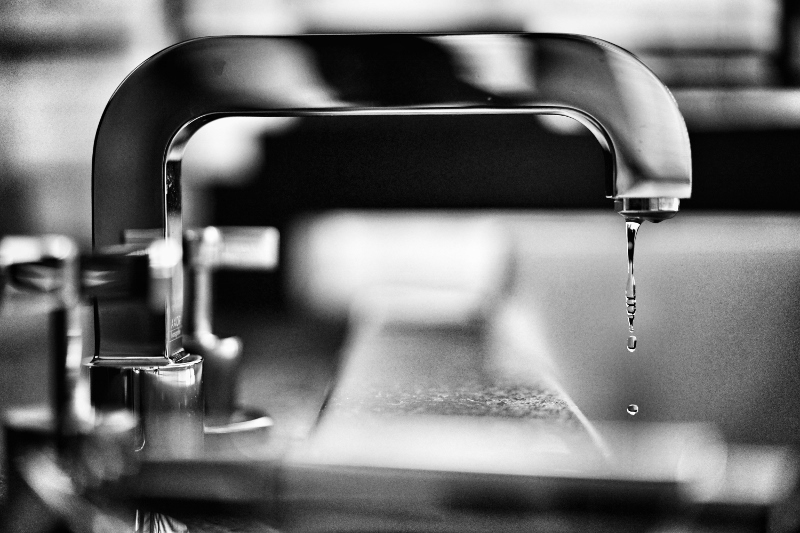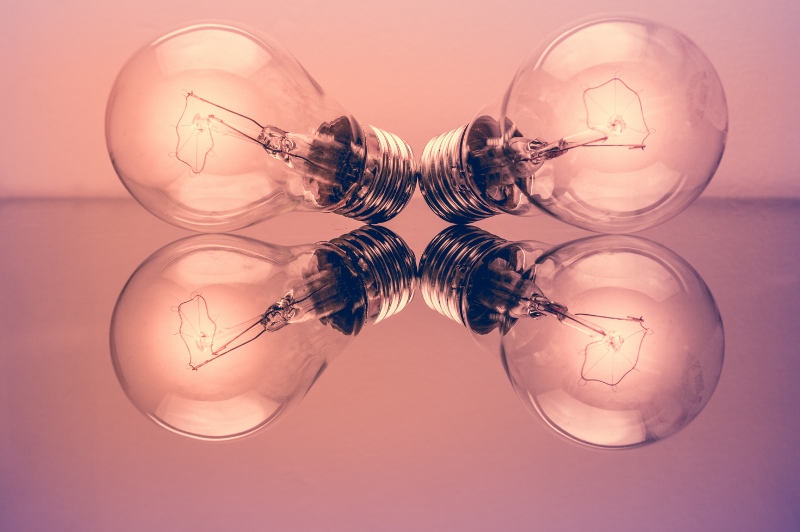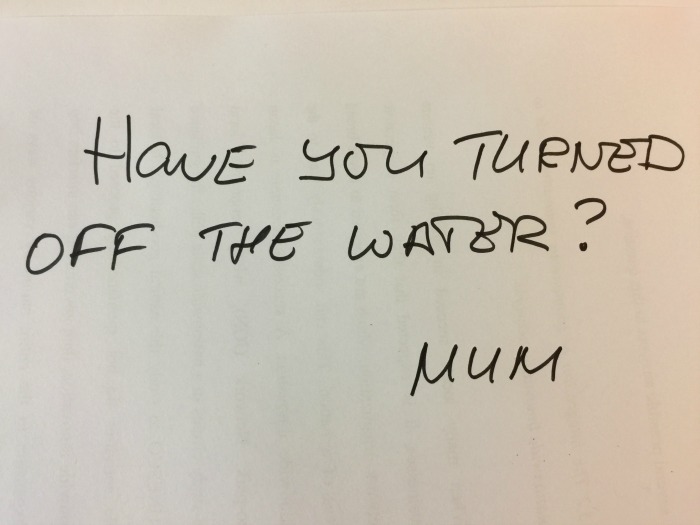You know, 2022 has been difficult enough. Now we all have a choice. We either save energy or stay cold all the time.
Energy is expensive and it will become even more pricey. Still, we managed to reduce energy and utility bills once and will do it again.
Here is a list following The Money Principle ERR strategy for money management to save energy and slash utility bills. Your wallet will thank you and the environment will recognise your contribution.
The ERR strategy for money management is about:
- Eliminate (waste);
- Replace (change the way in which you do things); and
- Reduce (consumption).
Here is what actions you must to take, I believe, under each of these to keep your energy and utility bills under control.
7 easy ways to save energy at home by eliminating waste

Photo by pan xiaozhen on Unsplash
Here are seven easy and straightforward ways to eliminate waste and save energy at home.
Some of these you can implement immediately, others may need to wait; some are cheap to put in action, others not so much.
All are very much worth doing: by eliminating waste of energy you can save hundreds per year. And it feels so great!
#1. Pull the plug
Okay; how many of your electrical appliances are left on standby? My guess will be ‘many’. And this is a waste of energy you really don’t need – most appliances will be perfectly fine if you pull the plug (watch for some TVs and recording devices because these may lose their memory if plugged off). Word on the street is that, depending on how many devices you use, you can save between £35 and £50 per year by simply unplugging. Doesn’t sound much but this is one week of food, a couple of pairs of trousers, a pair of shoes or a nice little chip off your debt (or contribution to your ISA). So, think again.
#2. Put out lights
My Dad used to drive me mad when I was little by sending me back to put out the lights. I thought he was unnecessarily stingy. Now I do the same. Leaving lights on when there is no one who needs light is a waste of the worst kind. So, put the lights off; and teach your kids to do it as well.
#3. Get yourself some draught excluders
I know, I know. These look very silly and you can trip in them. They help keep the heat in, though. Which is kind of important during the winter – after all, why would you willingly choose to heat the universe; and pay for it. While you are at it, you may wish to get some heavy curtains as well.
#4. Carpet is better than wood
This is the bane of our marriage: I like wooden floors and John wants to stick with carpets. There is a mixture of flooring in our house but I’ll have to say that carpets do keep the house warmer.
#5. Get some more insulation
I’ve come to believe that insulation is a bit like shoes: one can never have enough of it. We have cavity wall insulation (needs renewing), loft insulation…all kinds of insulation. It makes a very big difference and it not only keeps the heat in: in summer it keeps it out better as well.
#6. Double glazing
Yes, it is true: in the 21st century, some houses in the UK still don’t have double glazing. When it comes to eliminating waste and saving on energy, this is essential.
#7. Check for drips
Sounds trivial, I know. But dripping water can really lead to very large waste of both water and energy (to heat and move it around the house). And it is annoying!
7 replacements to slash your energy bills

Photo by Dragos Gontariu on Unsplash
You can save on energy a lot by eliminating waste; you can save even more – and more sustainably – if you change the way you do things when it comes to energy use.
Here are seven changes that can lead to large energy-saving gains:
#1. Change your light bulbs
Yes, get yourself some energy-saving bulbs. They don’t come cheap but they also pay for themselves from savings within several months. This doesn’t mean that you should start leaving the lights on but it won’t be so bad if you occasionally forget them on.
#2. Buy new appliances
New white goods are generally much more energy efficient than the ones made 5-10 years ago. The interesting question is, what do you do if a very old appliance that sucks energy like a thirsty man on a bottle of cold beer is still working. In such cases, I do the maths: how long would it take for the more energy-efficient and new appliance to pay for itself? This helps decide what to do.
#3. Get/use a dishwasher
It is only natural to believe that washing by hand is more energy efficient than using a dishwasher. Like most natural beliefs, this is wrong. A full dishwasher load uses 4 gallons of hot water per cycle (and this washes eight full-place settings). An average faucet flows at 2 gallons per minute. This means that you can hand wash more economically than a dishwasher if you can wash eight place settings in two minutes. Do you see?
#4. Change your energy supplier
We’ve been doing this one with some regularity over the last five years or so. It certainly pays off to be an energy shopper – getting cheaper energy complements nicely the other actions you can take to save on energy. Even only moving from a variable tariff to a fixed one can save you up to £250 per year. There are three steps to efficient energy shopping. First, you have to take stock of your energy bills; then you have to shop around; and lastly, you have to take control and act on your research.
#5. Install solar panels
Installing solar panels is an important change when you wish to save on energy. This is something that needs an initial investment, though. What I want to mention is that our solar panels generate annually over £700 worth of electricity (about 12% ROI) in ‘sunny’ Manchester.
#6. Change your heating controls
We’ll need to do this one – our heating controls are so ancient that we often find the heating on when it shouldn’t be. Sometimes, I’m freezing because the heating has not come on. Now there are advanced heating control systems that allow you to time your heating precisely, heat different parts of the house at different times, etc. Certainly worth a second thought.
#7. Change your shower head
I always suspected that our drench shower is more efficient than the movable head. It turns out I’m right. Look into changing your shower head with a water-saving one – this way, you can have a decent shower and save on water and the energy to heat it.
5 things to remember to reduce your energy consumption (and bills)

Photo by Michael McAuliffe on Unsplash
You will reduce your energy consumption substantially by implementing all the ways to eliminate waste and change your energy use.
Further, you can think about whether you are over-consuming.
For instance, you need to remember the following:
#1. You don’t have to lounge around wearing only a t-shirt in the winter
This sound ridiculous, I know, but there are people who’ll have their thermostat on high and the windows opened because they are too hot. You don’t have to walk around your house in a t-shirt in the winter, you know; just put a jumper on.
#2. Your oven doesn’t have to be heated an hour before the meal is ready to go in
Again, sounds funny but even I do this one from time to time. I start preparing the meal and put the oven on; the trouble is the oven takes 7 minutes to heat and the dinner 25 minutes to prepare. Do you see what I mean? (A variation on this one is heating a kettle when you need a cup and having the heating on in rooms you don’t use.)
#3. Empty rooms don’t need light
This has really started to annoy me. My son leaves all lights on, all the time. (It also makes me realise that I’m becoming like my father at his most annoying; still, he had a good point it seems.)
#4. Showers are to get clean
Showers are to get clean and this takes approximately 6 minutes (sorry to sound like Jack Reacher here but this is my limit; I’ve timed it). Both my husband and my son tend to use the shower for other purposes like to get warm, or to have some pleasant thinking time. This is overconsumption.
#5. Double check the water tabs
Yes, we do this one. John and I forget them on; our son at some point couldn’t be bothered. So much so that I had to resort to non-traditional measures (see photo above).
Finally…
I use this list of ways to save energy regularly to make an inventory of our energy and water use. This certainly helps me keep our energy bills optimal.
Are you curious about which ones I’m not really good at?
Here they are:
- I keep my appliances on standby.
- I forget (occasionally) the lights on.
- I need to change the heating controls.

Love the new look. I miss my logo but love the new look.
When we first bought our home, my wife and I didn’t really know what the bills were going to be. We asked people in our neighborhood what they were paying to get an idea of what we were up against but it wasn’t until we lived there for 6 months that we truly started to see the averages.
Then one day we heard a hissing sound. We didn’t think anything of it until we got our water bill. It was nearly 3 times the average of the prior 6 months. I then investigated the hissing sound and found out we had a toilet leak. So, I ran to HD and fixed it and then became a bit obsessed. That is when I put my ear to ever sound in the house. I everything that looked broken. When everything was said and done, after we got our next water bill saw it had gone down $30 less than the 6 month average.
Fix everything and stay on top of everything.
@Jai: Jai, my friend, I’m so pleased you like the new look of The Money Principle. I loved the one we did together but…a time for change had come. And thanks for sharing your story: having everything working optimally is in the basis of saving on energy and utilities.
I leave my back porch light all night for safety reasons ,is it necessary? I feel. Safer or just a bad habit.
@Pauline: I’d say ‘bad habit’. But the way things make us feel is important so if it really makes you feel safer, please continue leaving your porch light on – change it to a saving one though.